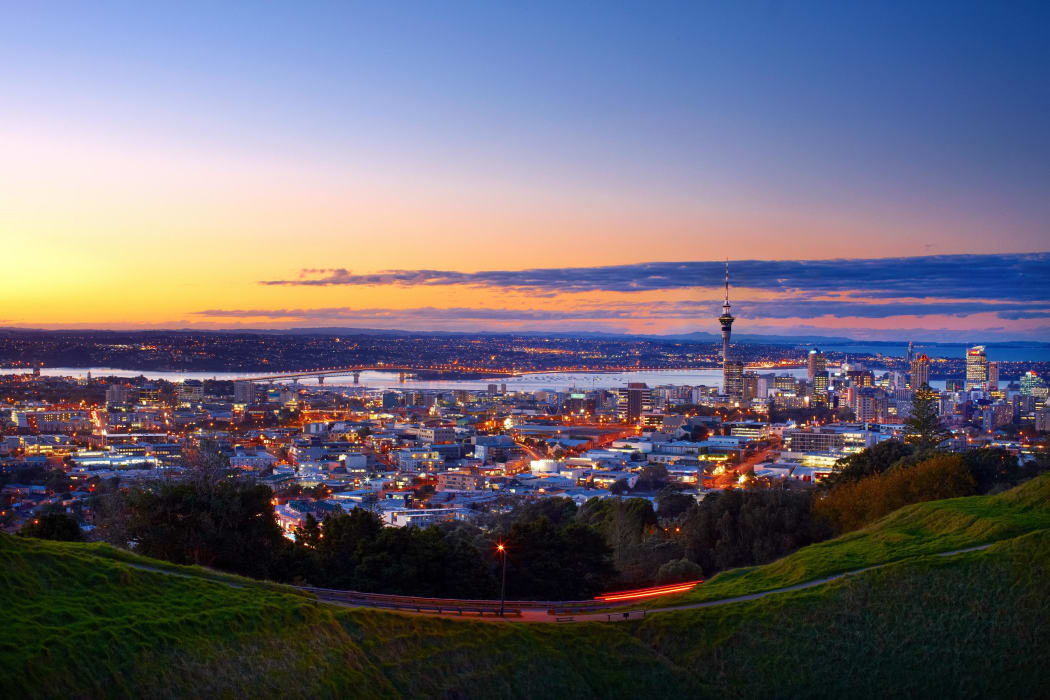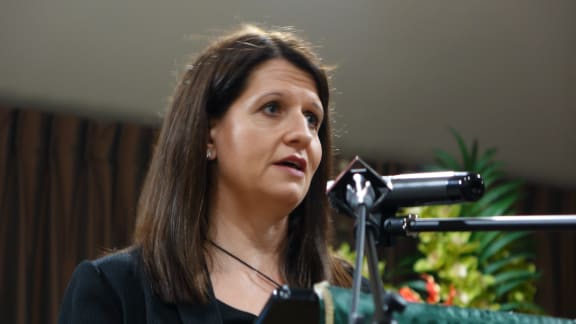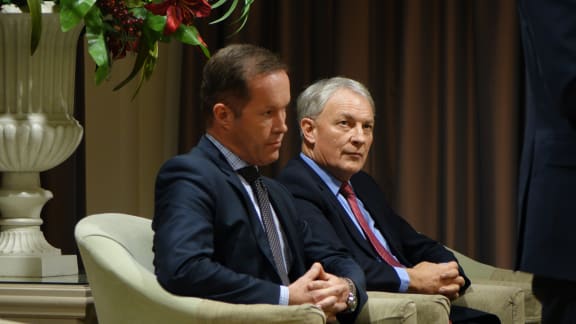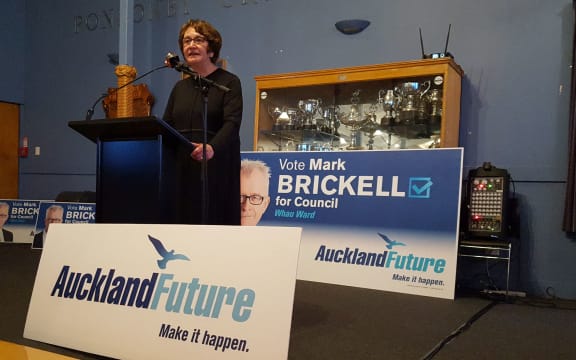The Auckland Council heads for just its third election since amalgamation facing major challenges, but with a mayoral contest that is so far struggling to capture public imagination.

Auckland: New Zealand's largest city as seen from the suburb of Kingsland Photo: Supplied / ATEED
Most of the leading contenders for the mayoralty vacated by two-term incumbent Len Brown are campaigning on a similar mix of policies.
The contest for some of the 20 council seats looks more compelling with seven weeks to go, however, and the campaign by the National Party-aligned Auckland Future ticket could have some unexpected side effects.

Business executive Vic Crone's mayoral campaign is linked to the centre-right Auckland Future ticket. Photo: RNZ / Todd Niall
Metro editor-at-large Simon Wilson said he was feeling apprehensive about whether the election campaigns would fire, given the job ahead for the next council on transport and housing.
"There are really big opportunities here for a council to seize these issues by the scruff and say 'we've got enough of the infrastructure and planning processes in place that we can start making decisions and making the city work better'."
The third council will take office with the city's long-term development blueprint, the Unitary Plan, finally in place after nearly five years in the pipeline.
It sets the path towards a city that will transform much of its traditional suburban landscape into medium density housing over the coming decades.
An agreement is also expected to be signed before the election between the council and government on the future list of big transport projects to be pursued.

The only politicians in the mayoral race are Mark Thomas, left, and Phil Goff. Photo: RNZ / Todd Niall
Mayoral hopeful and business executive Vic Crone said it was a "pivotal election for Auckland".
"And that's because we've had the super city for almost six years. It's unlocked some opportunities for Auckland, but it's clearly not working for Aucklanders."
Ms Crone and the acknowledged front-runner, Labour MP Phil Goff, have both made big plays with fiscal policies, promising to cap rate rises at 2 and 2.5 percent respectively, and cut council costs.
Others near the front of the mayoral pack, such as local board member Mark Thomas and restaurateur John Palino have a different mix of policies on growth and transport.
Tickets and turnout
The new Auckland Future ticket came into being after a push by local National MPs Nikki Kaye and Paul Goldsmith to have a more cohesive centre-right team on the council.
"Lack of leadership" was the blunt view of the centre-right's performance so far, from Auckland Future co-ordinator and former National Party president Sue Wood.
"There's a degree of mistrust, it's a big job, a tough job, and you've got to work collegially, you've got to have strong leadership, and there's been an absolute absence of leadership," she said.

Former National Party president Sue Wood is co-ordinating the Auckland Future ticket Photo: RNZ / Todd Niall
Auckland Future has had an uncomfortable relationship with long-standing centre-right ticket Communities and Residents - and, in the Albert-Eden-Roskill Ward, both teams have fielded candidates, with three of them chasing two seats.
But Auckland Future's campaign in the traditionally Labour-dominated southern wards might have an unexpected impact on the election's other big issue - turnout.
Voter turnout slumped from 51 percent in the inaugural election in 2010 to 35 percent in 2013 - the second lowest in the country.
The council is spending more than $1 million on a campaign to motivate those least likely to vote: tenants, young people, the poor and ethnic communities.
Auckland Future's recent campaign launch was dominated by supporters from the southern wards.
Labour candidate Efeso Collins is running in the Papatoetoe-Otara ward, where turnout was just 29 percent, and he said he thought his right-wing rivals might change that.
"If I'm knocking on doors and the Auckland Future people are knocking on those doors, it means people are thinking something's going on here - it raises that level of consciousness about what's going on."
The Auckland Council itself said turnout was challenged by the structure of all local body elections, including the requirement for voting to be postal and the lengthy three-week voting period that spanned the school holidays.

